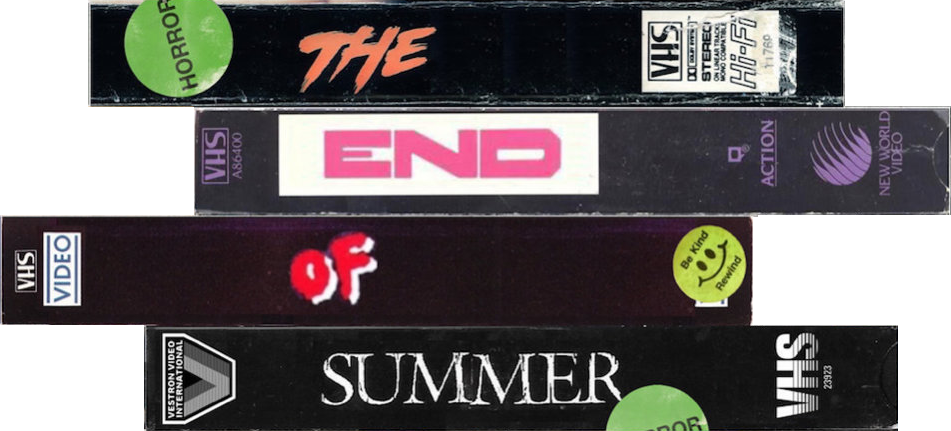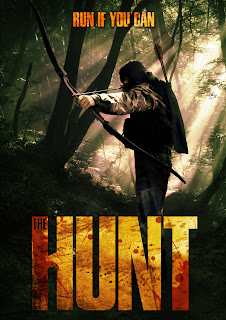
I love revival films. I love this idea of resurrecting a time period from cinema history and finding ways to cleverly and lovingly recreate it in ways that are both genuine homage but still effective enough to create a strong and competent standalone film.
I've explored this art of imitation in a previous post, in which I highlighted certain modern horror films that lovingly revisited every major horror movement in cinematic history, starting with the silent era, and up to and including the 1980s. Sonno Profondo, produced by Italian filmmakers (though lensed in Argentina) is as successful an homage I've seen since Ti West's '70s satanic thriller House of the Devil.
The giallo was a sub-genre of which I have always been aware and always respected for its ability to combine often graphic horror, hypersexuality, and poetry of the camera to create an altogether different and revolutionary cinematic experience. Though my previous experience of the giallo resides entirely within the confines of Dario Argento and the brutal masterpiece of absurdity that is Pieces (it totally counts), it's not hard to have developed at least a rudimentary idea of what defines a giallo film: the killer's point of view, the leather gloves, the rich red blood, the discotheque score, the unrestrained sexuality, and the abstract non-linear sense of time. Add a killer with a whacked background and fixations on the fairer sex, and, well:
Giallo is back, and its name is Sonno Profondo.

Written/directed/resurrected by Luciano Onetti, Sonno Profondo is not just a love letter to the giallo movement. It's a fever-dream art house exploration of madness – what it is, what feeds it, and the chaos it creates. There is very little dialogue outside of some television reports; lacking (though not suffering because of it) are any kind of "big picture" shots. No sweeping exterior scenes of *coughcough*Italy, no day or night establishing shots. As was often the case in previous giallo films, and in the case of Sonno Profondo, scenes of murder and mayhem were always shot from the killer's point of view, but would often cut back either to the protagonist as she or he dealt with the repercussions of the killer's presence, or the inevitable detective hot on the trail of the killer. Not the case here. Similar to last year's Maniac redux, the entire film takes place behind the killers' eyes (and no, my apostrophe is not in the wrong place - we're dealing with two killers, here: the first killer [black leather gloves] responsible for the murder and mayhem, and the second killer [white surgical gloves] who begins to methodically blackmail and stalk the first).
Sonno Profondo preserves the sensibilities of '70s-era European filmmakers – Michelangelo Antonioni, for example, who assumed his audience was prepared to have patience for the journey he was about reveal to them – even going as far as dirtying up the film's negative to add all the cracks and pops one would come to expect from a forty-year-old film. Manufactured to look like it was both produced as well as set in the 1970s, Sonno Profondo is as immersive an homage you're likely to find in the independent scene. Lots of filmmakers are pledging to make films in the vein of paranoid-at-home thrillers of the 1970s and cheese-ball gimmick dead-teenager flicks of the 1980s; very few have endeavored to recreate the giallo, a movement that likened the horror genre as close to pornography (in terms of tastelessness) as it could get until the VCR boom of the mid-1980s, in which it actually did kind of become the kind of pornography as we know it today. (The Astron-6 crew [Manborg, Bio-Cop, Father's Day] are also working on their own giallo homage: The Editor.)
The first giallo trend would continue for some time and travel to American shores, even becoming embraced by Hollywood powerhouse directors like Hitchcock, though the style would become so watered down that it barely resembled everything that had directly inspired it. Psycho first, and then Halloween later, would both be termed as variations of the giallo movement; Carpenter would state for years he had been a big fan of Argento's Suspiria, around which he had modeled portions of Halloween.
The first giallo trend would continue for some time and travel to American shores, even becoming embraced by Hollywood powerhouse directors like Hitchcock, though the style would become so watered down that it barely resembled everything that had directly inspired it. Psycho first, and then Halloween later, would both be termed as variations of the giallo movement; Carpenter would state for years he had been a big fan of Argento's Suspiria, around which he had modeled portions of Halloween.
Make no mistake, Sonno Profondo is not a film for the uninitiated. If you've never seen any giallo films before, don't start here. Start with the very first credited entry - Mario Bava's The Girl Who Knew Too Much - and continue on with Argento (but skip the Adrian Brody film Giallo while you're at it), whose collaborations with composers Ennio Morricone and Goblin would soon cement the importance of the soundtrack on the giallo movement. Only when you're immersed in the movement can you truly appreciate the homage.
If Sonno Profondo is successful or unsuccessful just on the merits of being a film alone, I couldn't say. When you have no choice but to experience the murderous exploits of either one or both off-screen killers, you've got no one to root for. You've got no sympathetic protagonist to whom you're supposed to relate. Some audiences don't know how to respond to such an idea.




































